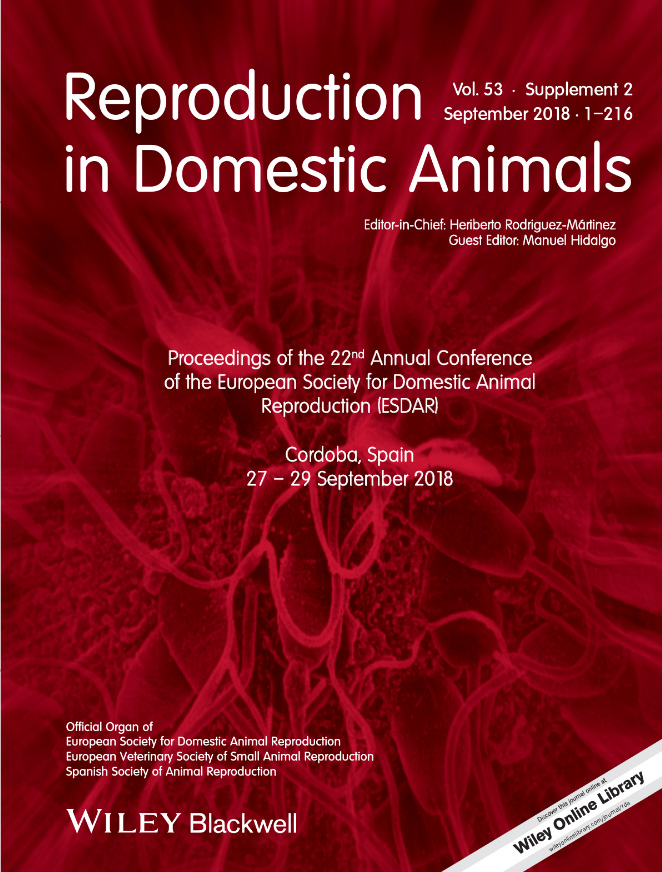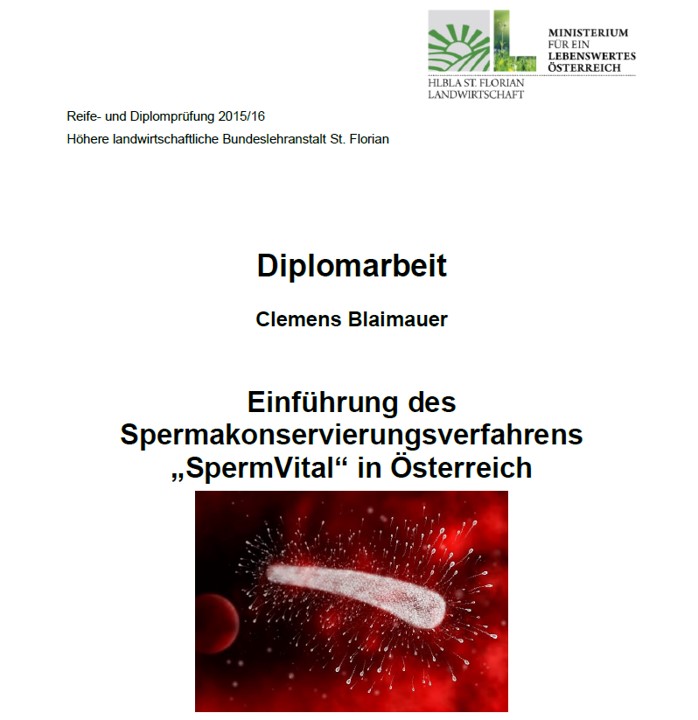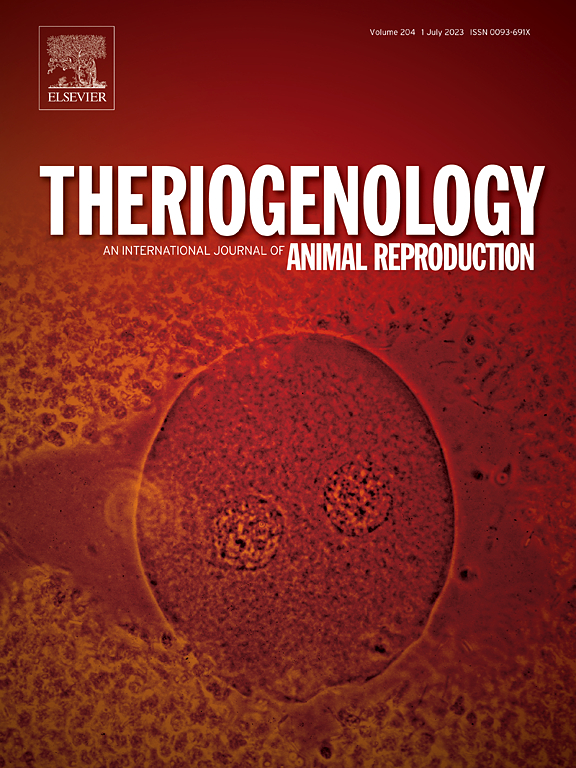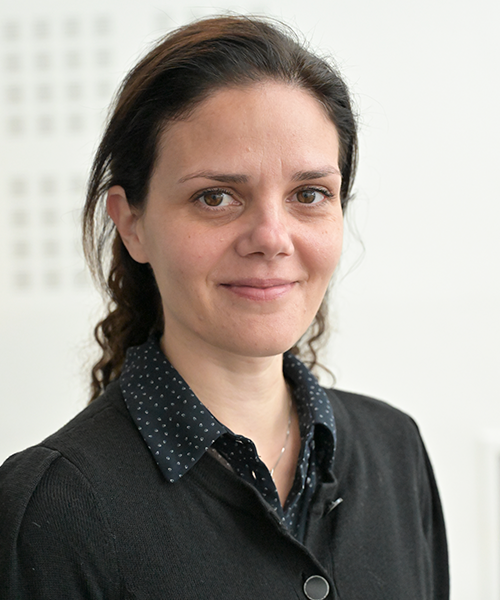Dovea will launch SpermVital semen
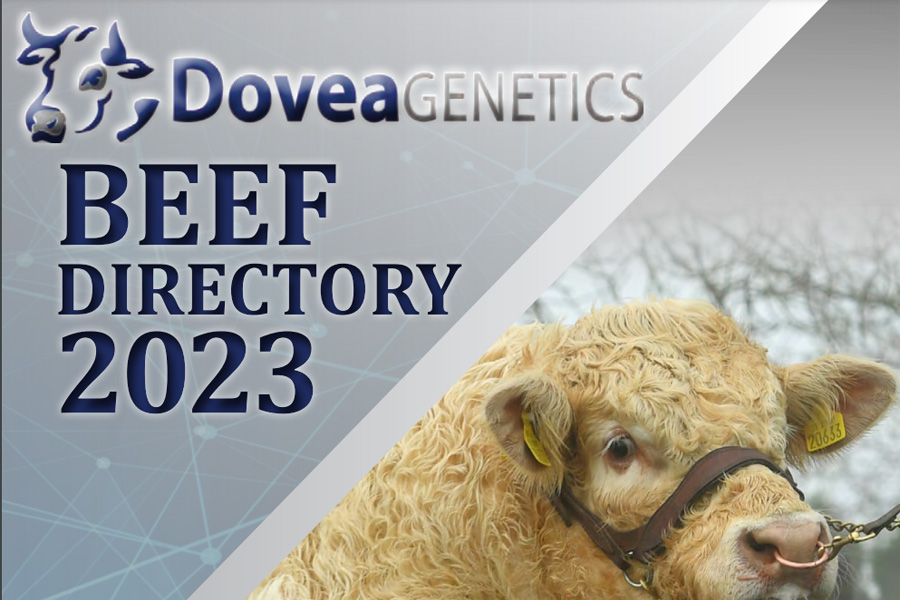
Dovea Genetics will launch SpermVital semen in Ireland.
Dovea Genetics is Ireland’s Leading Beef and Dairy Semen Supplier. Dr. Ger Ryan, General Manager of Dovea Genetics said ‘We are delighted to introduce SpermVital technology to the Irish market. We feel the technology has a role in improving fertility on Irish farms. We look forward to working closely with Spermvital in the coming years. The introduction of this technology follows on from the success of our Triple Mix Breed Semen which we launched Spring 2022 which are all part of our commitment to improving fertility’. The bulls that will be available Spring 2023 with the SpermVital technology are Kealkil Prime Lad (AA4743), Keirsbeath Karma (AA4638), Skehanore Fruitful (HE7545), Ewdenvale Ivor (LM2014), Affute De Thiboumont (BB4597) & Knockmoyle Loki (CH4159).
For the Irish farmer who is depending on a concentrated calving, using SpermVital semen on repeat breeders can be a good strategy. SpermVital can also be used in connection with synchronization programmes. Although the objective is to synchronize the heat, there is a deviation between the individuals in a group and SpermVital semen inseminated early can help to overcome this challenge’.
Studies of gel with immobilized semen by intrauterine endoscopy post-artificial insemination
Studies of gel with immobilized semen by intrauterine
endoscopy post-artificial insemination
Halldor Felde Berg, | Heidi Cecilie Larsen Spång | Bjørg Heringstad | Erik Ropstad1 | Anne Hege Alm-Kristiansen | Elisabeth Kommisrud
Reproduction in Domestic Animals, Januar 4, 2020
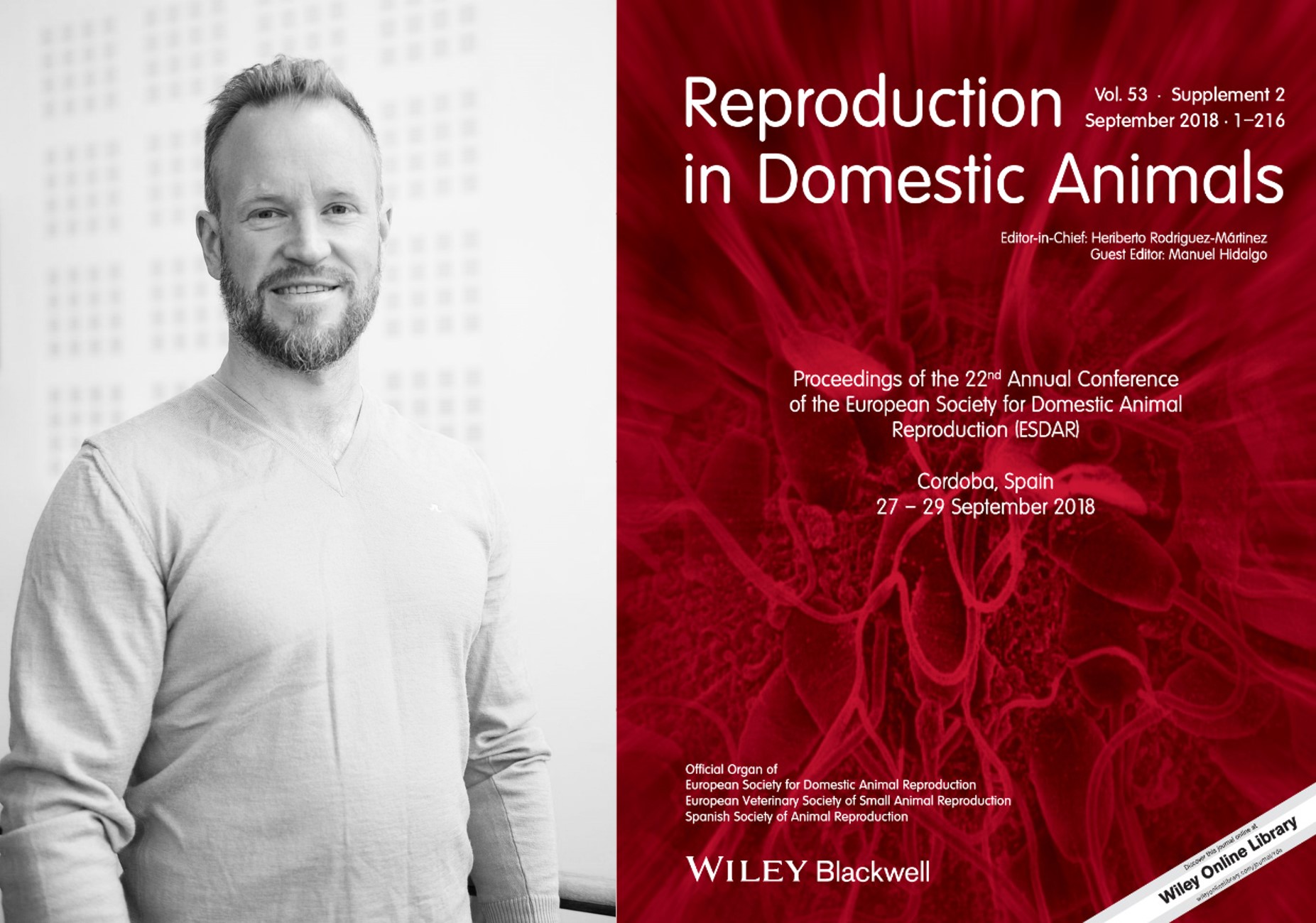
An extended lifespan of spermatozoa following artificial insemination (AI) can make
the timing of insemination less critical, as previously demonstrated with immobilized
spermatozoa that are gradually released from an alginate gel. The purpose was to
examine the in vivo dissolution of SpermVital (SV) alginate gel over time by endoscopy
and secondly to assess spermatozoa quality after incubation of the gel. In vivo
endoscopy showed SV gel in the uterus 3, 6, 20 and 24 hr after AI, demonstrating
the potential release of spermatozoa to the uterus during this period. In utero ex vivo
incubation of the semen demonstrated that high motility and viability of sperm cells
was sustained following overnight incubation.
SpermVital shows clear advantage in Turkish field study
During the DVG Vet Congress in Berlin in 2017, a study done by Dr. Alper Koçyiğit, DVM, PhD, University of Cumhuriyet, Turkey, was presented.
The title of the study was “Performance of Spermvital Technology on Pregnancy Rate in Repeat Breeder Dairy Cows” The study showed that SpermVital semen provided a 11,3% higher fertility rate than conventional semen.
The aim of this study was to investigate the effect of SpermVital semen on conception rates in repeat breeder multiparous dairy cows. Seventy-nine multiparous Holstein cows from a private dairy farm were used in the study. These animals were cows that had failed to conceive from at least 3 regularly spaced services (repeat breeders). Estrus cycles of the cows were synchronized by 2 injections of the PG analogue, administered 11 days apart. GnRH was applied 48 h after the second injection of PG. Twenty-four h after this administration, the animals were randomly divided into 2 groups, control and SV. The animals in the control group (n = 28) were inseminated with standard processed semen, and the cows in the SV group (n = 51) were inseminated with SV® technology processed semen. A lower pregnancy rate (35.5%) was determined in the control group than in the SV (47.1%) group. The difference between pregnancy rates in the groups was statistically significant (P < 0.05).
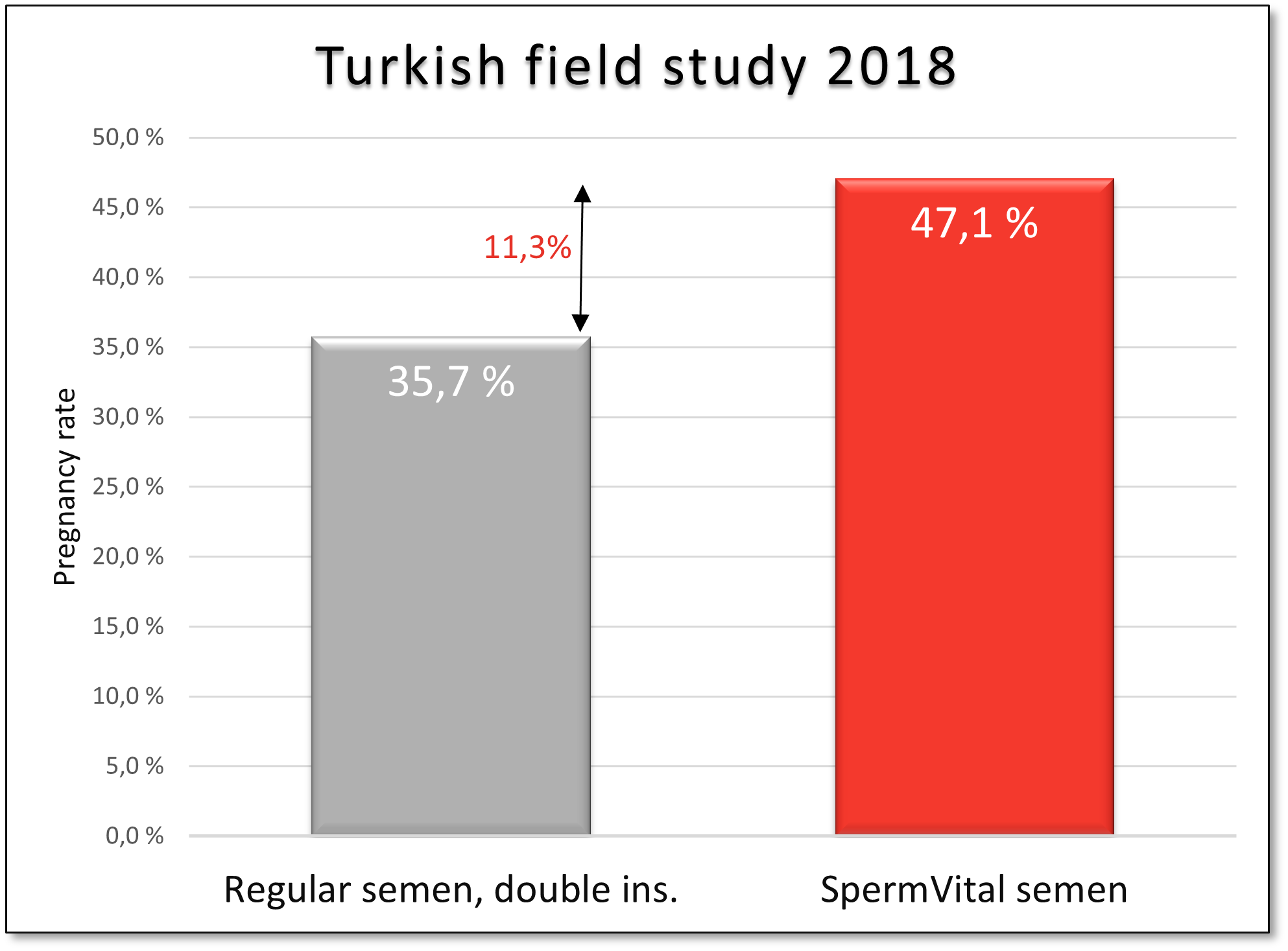
In vitro studies of Norwegian Red bovine semen immobilized and cryopreserved in alginate solid gel network
In vitro studies of Norwegian Red bovine semen immobilized
and cryopreserved in alginate solid gel network
AH Alm-Kristiansen | ER Gaustad | G Bai | FB Standerholen | G Klinkenberg | E Kommisrud | KE Waterhouse
Reproduction in Domestic Animals, 30 October, 2017
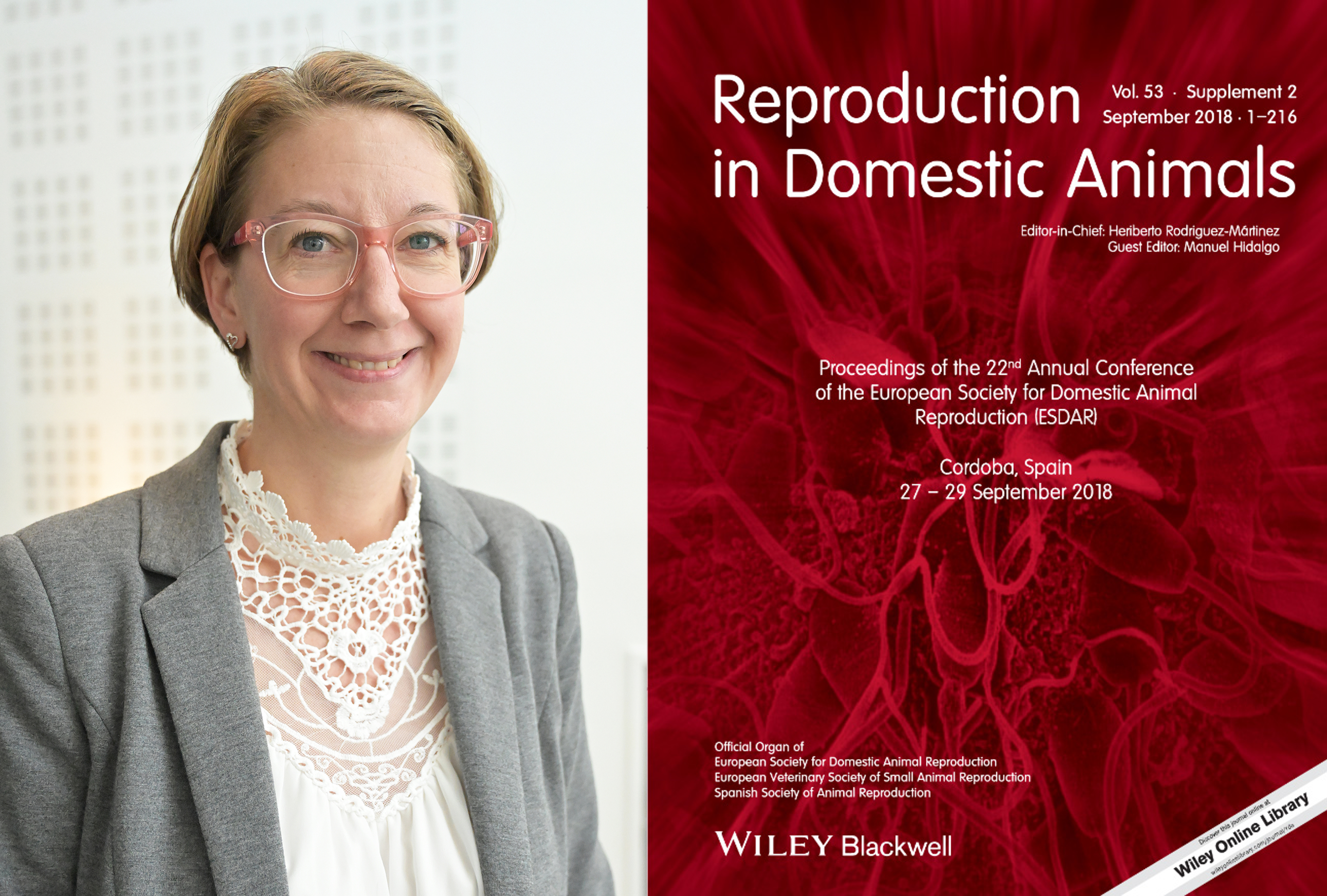
Contents
Development of new semen cryopreservation techniques improving sperm survival
and ensuring availability of viable spermatozoa for a prolonged time-period
after AI is
promising tools to reduce sensitivity of timing of AI and enhance overall fertility. The
SpermVital® technology utilizes immobilization of bull spermatozoa in a solid network
of alginate gel prior to freezing, which will provide a gradual release of spermatozoa
after AI. The objective of this study was to compare post-thaw
sperm quality and in
vitro sperm survival over time of Norwegian Red bull semen processed by the
SpermVital® (SV) technology, the first commercialized production line of SpermVital®
(C) and by conventional procedure applying Biladyl® extender (B). Post-thaw
sperm
motility was not significantly different between SV, C and B semen (p > .05). However,
sperm viability and acrosome intactness were higher for SV than C and B semen
(p < .05). Small differences in DNA quality were observed (p < .05). Sperm viability
after storage in uterus ex vivo was higher for SV than for C semen (p < .05). Furthermore,
sperm survival in vitro over time at physiological temperature was significantly higher
for SV semen than C semen as well as B semen during the incubation period of 48 hr
(p < .05). In conclusion, the SpermVital® technology is improved and is more efficient
in conserving post-thaw
sperm quality and results in higher sperm viability over time in vitro for SV than for C and B semen.
Reproductive performance of immobilized cryopreserved bovine semen used for timed artificial insemination.
Reproductive performance of immobilized cryopreserved bovine semen used for timed artificial insemination.
Anne Hege Alm-Kristiansen AH1,2, Gunnar Dalen G3,4, Geir Klinkenberg G5, Laila Bekk L2,Lill Therese Thorkildsen LT2, Karin Elisabeth Waterhouse KE2, Elisabeth Kommisrud E1,2.
Reproduction in Domestic Animals, July 9, 2017

The SpermVital® technology comprises embedding of spermatozoa within an alginate gel to facilitate release of sperm cells over a prolonged period in utero after AI. The aim of this study was to examine whether the survival time of spermatozoa is extended when applying this immobilization technology in combination with cryopreservation. Sperm cell survival (acrosome and plasma membrane integrity) was studied in vitro for 48 hr at physiological temperature. One dose of SpermVital® (SV) semen was compared with single doses of Biladyl® (B) processed semen as well as double doses of B (B double). B double was obtained by adding a second B dose the following day, thereby mimicking double AI. Furthermore, reproductive performance applying single early timed AI (TAI) with SV following oestrus synchronization was studied in a field trial. Double insemination (TAI on two consecutive days) with B semen served as control. Number of acrosome-intact live sperm cells decreased over time in vitro for all treatments (p < .05). There was no difference between SV sperm cell survival and B double after 24 hr (p > .05). However, after 48 hr, SV sperm cell survival was higher than B double (p < .05). Moreover, multivariate analysis showed that the outcome of single early TAI with SV was not significantly different from B double (p > .05). Likelihood of pregnancy and calving in the heifer group was higher than in the cow group (p < .05). These results imply that spermatozoa immoblized in alginate gel have prolonged survival.
Einführung des Spermakonservierungsverfahrens „SpermVital“ in Österreich
Einführung des Spermakonservierungsverfahrens „SpermVital“ in Österreich
Diplomarbeit bei Clemens Blaimauer
Reife- und Diplomprüfung 2015/16
Höhere landwirtschaftliche Bundeslehranstalt St. Florian

This thesis deals with the launch of SpermVital, a new revolutionary technology which prolongs the lifespan of semen, in Austria. In the autumn of 2015, the Genostar Rinderbesamung GmbH started to sell the SpermVital technology to both dairy and beef farmers. The farmers in Austria will finally be getting the advantages of the SpermVital technology with increased flexibility and the ability of grouping inseminations together. The SpermVital technology will also help increase the pregnancy rates on repeat breeders. The advantages for the farmers are examined in this thesis.
The NRR 56 of standard processed bull semen was compared with the NRR 56 from SpermVital semen of agricultural operations, which intensively used SpermVital. The collected data were compared in a period of three months.
In a second step, the NRR 56 from SpermVital – insemination was compared with the average NRR 56 from Fleckvieh Niederösterreich.
The results show that SpermVital have at least the same fertilization results as standard processed bull semen. No potential improvements in the results have been found. The problem is that farmers use the expensive SpermVital technology for cows which have fertility problems. A correction for this problem is not possible because of the small data volume and that fertility is influenced by many factors.
Use of immobilized cryopreserved bovine semen in a blind artificial insemination trial
Use of immobilized cryopreserved bovine semen in a blind artificial insemination trial
Fride Berg Standerholen, Karin Elisabeth Waterhouse, Anne Guro Larsgard, Randi Therese Garmo, Frøydis Deinboll Myromslien, Jan Sunde, Erik Ropstad, Geir Klinkenberg, Elisabeth Kommisrud,
Theriogenology volume 84, Augus 2015, Page 413-420
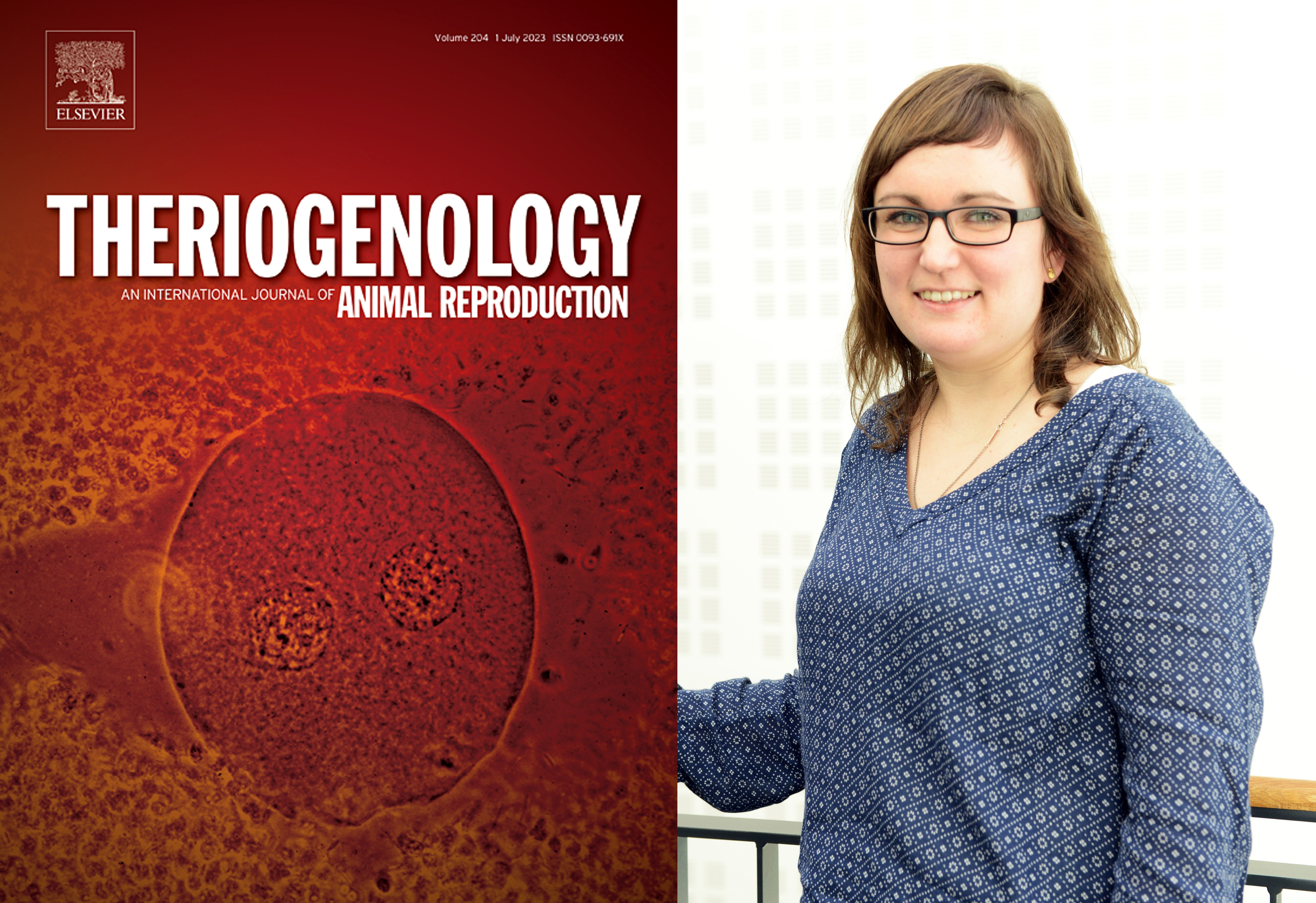
To make timing of artificial insemination (AI) relative to ovulation less critical, methods for prolonging shelf life of spermatozoa in vivo after AI have been attempted to be developed. Encapsulation of sperm cells is a documented technology, and recently, a technology in which sperm cells are embedded in alginate gel has been introduced and commercialized. In this study, standard processed semen with the Biladyl extender (control) was compared with semen processed by sperm immobilization technology developed by SpermVital AS in a blind field trial. Moreover, in vitro acrosome and plasma membrane integrity was assessed and compared with AI fertility data for possible correlation. Semen from 16 Norwegian Red young bulls with unknown fertility was collected and processed after splitting the semen in two aliquots. These aliquots were processed with the standard Biladyl extender or the SpermVital extender to a final number of 12 × 106 and 25 × 106 spermatozoa/dose, respectively. In total, 2000 semen doses were produced from each bull, divided equally by treatment. Artificial insemination doses were set up to design a blinded AI regime; 5 + 5 straws from each extender within ejaculates in ten-straw goblets were distributed to AI technicians and veterinarians all over Norway. Outcomes of the inseminations were measured as 56-day nonreturn rate (NRR). Postthaw sperm quality was assessed by flow cytometry using propidium iodide and Alexa 488–conjugated peanut agglutinin to assess the proportion of plasma membrane and acrosome-intact sperm cells, respectively. In total, data from 14,125 first inseminations performed over a 12-month period, 7081 with Biladyl and 7044 with SpermVital semen, were used in the statistical analyses. There was no significant difference in 56-day NRR for the two semen categories, overall NRR being 72.5% and 72.7% for Biladyl and SpermVital, respectively. The flow cytometric results revealed a significant higher level of acrosome-intact live spermatozoa in Biladyl-processed semen compared to SpermVital semen. The results indicate that the level of acrosome-intact live spermatozoa in the AI dose did not affect the 56-day NRR for the two semen processing methods. In conclusion, this study has showed that immobilized spermatozoa provide equal fertility results as standard processed semen when AI is performed in a blinded field trial, although the immobilization procedure caused increased sperm damage evaluated in vitro compared to standard semen processing procedure.
Italian field trial show increased pregnancy rate for SpermVital® semen
The field trial, performed by the Ambrovet group, was based on 2076 inseminations and showed that inseminations with SpermVital® semen increased the pregnancy rate by 8,4% on average.
SpermVital® conducted a field trial in Italy during the summer and fall of 2012 to test the effect of the SpermVital® technology utilized on the Holstein breed.
The conception rate increased on average from 33.5% with regular semen to 41.9% with SpermVital® semen. The difference in conception rate increased with the number of inseminations needed. The difference in conception rate was 10,2% between SpermVital® semen and regular semen on cows needing more than 3 inseminations. These results show that cows that return to heat increase their conception rate greatly by utilizing the SpermVital® technology.
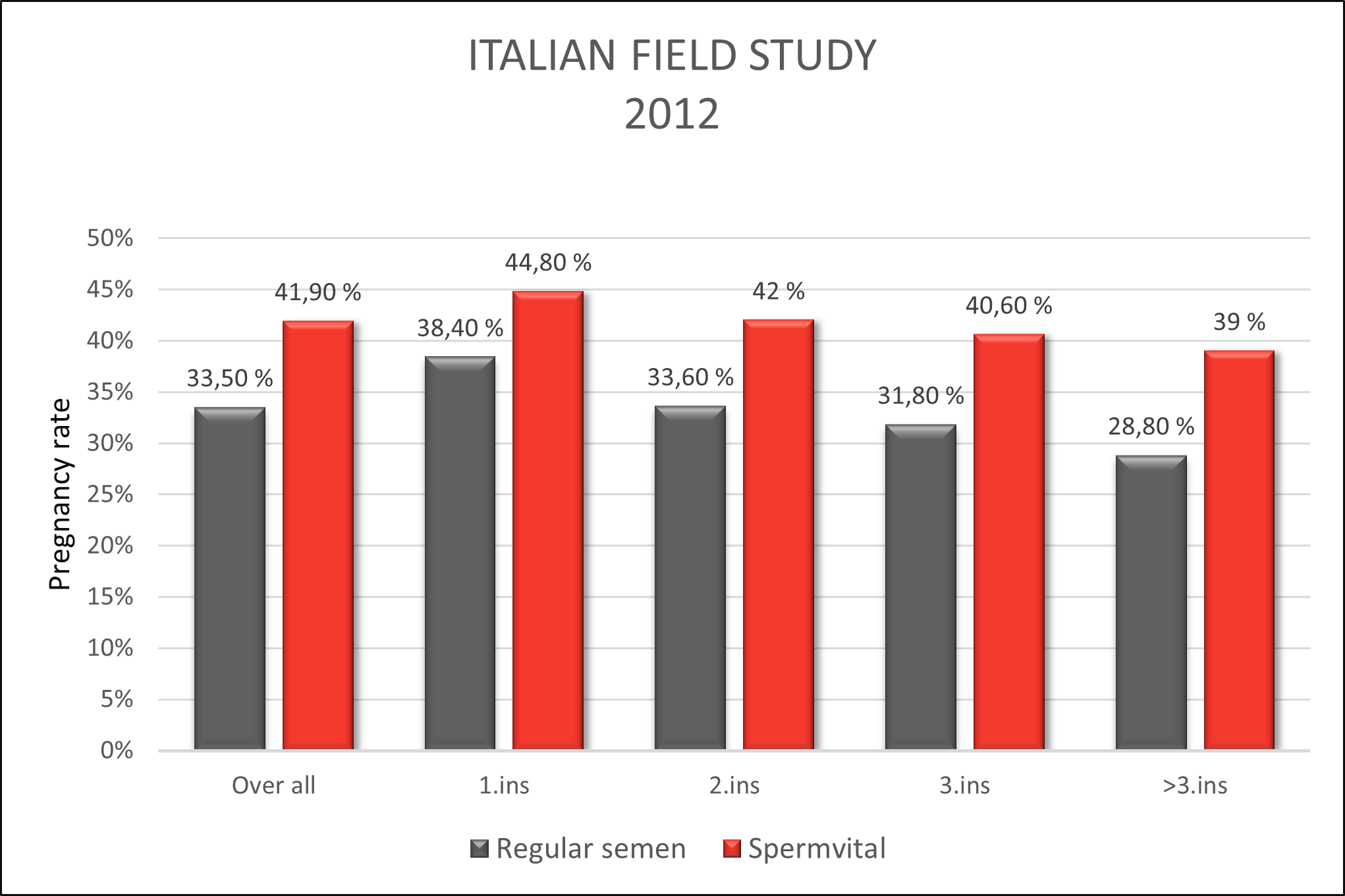
2076 doses of semen were used in this blinded field trial, where half of the inseminations were made with Holstein SpermVital semen and half with regular Holstein semen. The Holstein cows were inseminated at normal time, which is not the optimal time for insemination to achieve full effect from the SpermVital technology since it will not capture the ones with early ovulations. Normally you will inseminate a little early when you are using the SpermVital technology to achieve all the benefits the technology has to offer.
The difference between the groups are statistically significant.
The pregnancy check was performed by ultrasound.










